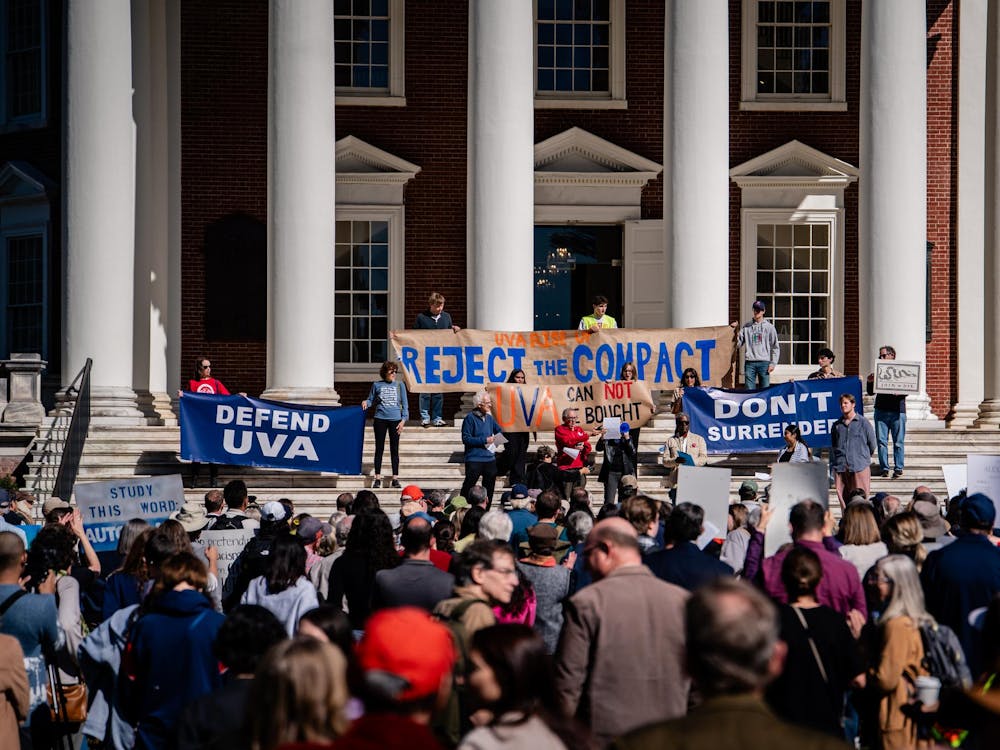EIGHT years ago, I attended the world’s largest Model United Nations conference in the Netherlands. I was representing Egypt and the issue was torture.
There was an irony about debating the legality of torture in a country where just about everything was legal. But the image of us smartly dressed adolescents sprawled across the carpet amidst ferocious debates and vigorous resolution-drafting is still etched in my memory.
Since torture was an epidemic in Egypt, I had to stifle progress by miring my opponents in the torture of nitpicking words and definitions. But, alas, my sinister stalling was thwarted by a coalition of principled nations led by the United States. As their proposal passed overwhelmingly, I remember thumbing my nose in utter frustration at the power of human rights.
But as I nestled into my seat at the Law School last week for a discussion on “Torture in U.S. Policy,” the contrast could not have been starker. Bush administration lawyers had drafted definition-tweaking memos to authorize prisoner abuse in Iraq, Afghanistan and elsewhere. By 2006, the UN was condemning one of its founders in the same breath as the world’s pariah torturers. Authoritarians gleefully pointed to Guantanamo when Washington trumpeted its ideals. And yet, it still took two three-star generals to tell us torture was boneheaded. The world’s greatest superpower had lost its moral authority.
Torture is not only amoral. International law says it’s illegal, experienced interrogators say it’s ineffective, and star-studded generals say it is un-American. Yet bizarrely, a policy that barely works is damaging our image across the world. Hence, the next President should waste no time in drafting a clear repudiation of torture and repairing the U.S. image. It’s time to stop this self-torture.
Torture defies both logic and law. It violates international law, most notably Article 3 of the Geneva Conventions and the U.N. Convention Against Torture. Common sense also says it’s ineffective, since tortured detainees would rattle off just about anything, like Ibn al Shayk al Libbi, who claimed Iraq had trained al-Qaeda to use biochemical weapons. The September 11 Commission has long since rubbished that phony link, which was ironically the one used to invade Iraq.
Ironically, torture wrecks America’s reputation in the world and the values it embodies more so than any terrorist can hope to achieve. Graphic videos and gruesome stories of Abu Ghraib and Guantanamo Bay have proliferated across the world and fueled anti-Americanism and terrorist recruitment. The United States is shooting itself in the foot. No surprise then that the 2006 Army Field Manual says torture “undermines both short and long-term counterinsurgency efforts.”
Torture has turned the world’s human rights’ champion into one of its most derided transgressors. Which is why those who fuss about how inhumane our enemies get to be miss the point. As Lt. Gen. Harry E. Soyster told the forum, “it doesn’t matter what they do, it’s what we do. We don’t lower ourselves to the level of this terrible enemy we are fighting.” Even if Al-Qaeda refuses to respect the rules of war, we ought not to abandon our great tradition of liberty that distinguishes us from them.
Stopping this self-torture must be a priority for the next president. Since both candidates have called for the closure of the Guantanamo Bay detention facility, they should deliver on this promise. Despite all its flaws, criminal prosecution is still more effective than preventive detention because it avoids netting innocents and preserves due process and international law.
The next president must also ensure that torture in Iraq remains only in the history books. From Jan. 1, all U.S. prisoners must be charged in Iraqi courts under U.N. regulations. But since the risk of torture in Iraqi facilities is fairly high, Washington must ensure that Iraqi authorities meet these regulations instead of taking a hands-off approach or finger-pointing.
But most importantly, the next commander-in-chief must deliver a clear rebuke of torture so that commanders in the ground have clear sense of direction and purpose. It should read something like this: “Some may argue that we would be more effective if we sanctioned torture or other expedient methods to obtain information from the enemy. They would be wrong. Beyond the basic fact that such actions are illegal, history shows that they are also frequently neither useful nor necessary.” I wish I were that eloquent, but this is a letter from the revered Gen. David Petraeus to his troops that Lt. Gen Charles Otstott cited at the forum.
We’ve endured eight years of an administration that thought it was time for “the gloves to come off” and then contaminated the nation’s reputation and values. The next president must battle our enemies but keep the ideals we stand for and the image we live for intact. Because, as Abraham Lincoln said at the height of the Civil War, military necessity does not admit to cruelty.
Prashanth Parameswaran’s column appears Thursdays in The Cavalier Daily. He can be reached at p.parameswaran@cavalierdaily.com.






